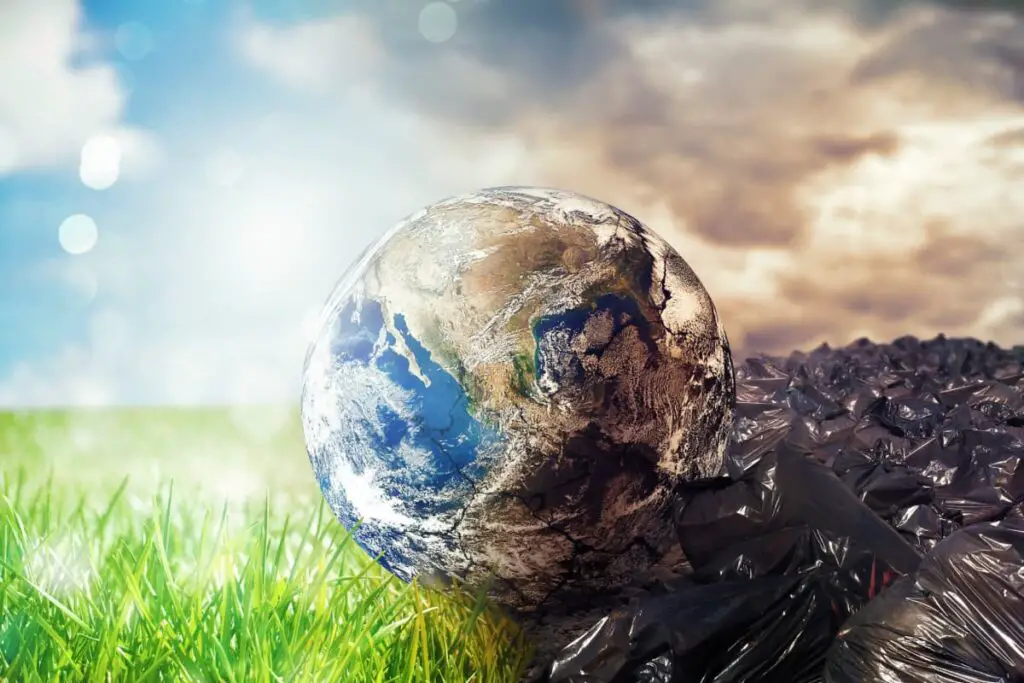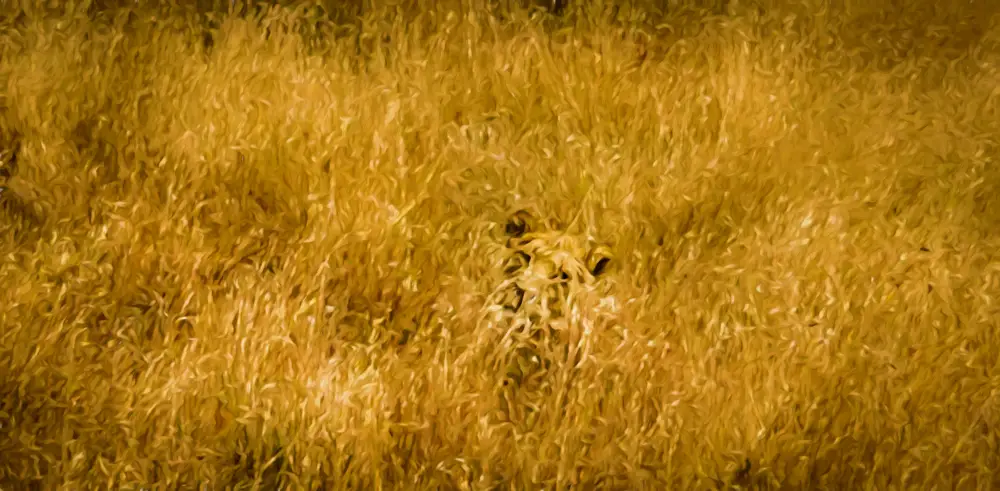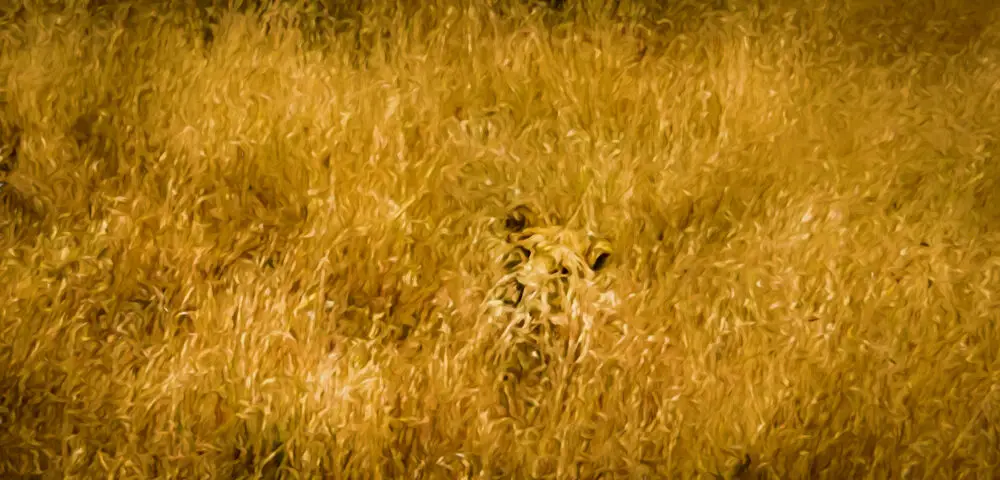Human beings have maintained an intricate relationship with nature since evolving in Africa nearly 300,000 years ago. The human relationship with nature is vital to our survival, and we simply would not exist without it. So, how exactly do we define this fundamental connection?
Human relationship with nature is vital. Without it, humans wouldn’t exist. It encompasses every aspect of human life, from food to oxygen. Despite the devastating impact humans have had, nature continues to thrive.

How Are Humans Connected to Nature?
Humans are connected to nature in every way imaginable.
Nature provides us with everything we need to survive — water, food, oxygen, sunlight — and more. Our homes, clothes, electronic devices, and vehicles all rely on natural resources, like wood, cotton, metals, minerals and stone.
The intricacies of our relationship with nature go beyond just the physical. In fact, the reason that I’m here writing this article and why you’re here reading is because nature allowed us the gift of human consciousness through evolution.
To put it simply, humans are a part of nature. We do not exist separately from it; without it, we do not exist.
Nature touches everything.
How Do Humans Affect Nature?
Today’s technological advancements have allowed us to sustain ourselves and our explosive population more efficiently. Unfortunately, this has led to a significant disconnect between us and nature.
We often feel that we exist entirely separate from nature — that we are more powerful, more intelligent, and independent.
But it is quite the contrary.
Technology and population growth have only made us more reliant on nature. The demand for resources has increased. We depend on plants, animals, minerals, metals, fossil fuels, and other natural resources to feed ourselves, power our homes and devices, and fuel our vehicles.
We need nature - we are not independent of it.
Overuse of Resources
Yet, we overuse these resources instead of protecting the very thing responsible for our existence and survival. We destroy habitats and we burn fossil fuels that negatively impact our air quality. We pollute the waterways, leading to a reduction in drinkable water.
Yet, human relationship with nature wasn’t always this way.
Long ago, humankind survived alongside nature, traveling among its untouched lands on bare feet. Our connection with nature ran deep. We thrived within these natural environments and developed an appreciation for its offerings — and we also had a deep respect for its often cataclysmic forces.
Nature was our provider and an energy source much more powerful than ourselves.
After settling in the Fertile Crescent, we lost our nomadic way of life and began the agricultural revolution. As a result, permanent settlements developed. Humans slowly began spending less and less time in natural surroundings.
The Loss of Our Relationship with Nature
Today, most of us seem to have all but lost our instinctive human and nature relationship.
In fact, it seems that humans have become less interested in surviving in conjunction with nature and more intent on dominating nature.
Humans affect nature through overpopulation, pollution, and the destruction of natural habitats, leading to devastating climate change. On the other hand, humans positively impact nature through reforestation efforts, clean energy use, and the protection of ecosystems and endangered species.

Fortunately, the human relationship with nature isn’t all bad. Positive impacts on nature include the spread of diverse plant and animal species to different parts of the world. Sometimes this doesn’t always create the desired results. But establishing pollinator gardens for insects, and cleaning lakes and seas usually does.
We’ve also developed the ability to affect nature’s pace and encourage its evolution.
Unfortunately, a lot of the good that humans do for nature is cleaning up a mess we are responsible for in the first place.
Nature’s Impact on Humans
Fortunately, nature is so powerful, she continues to persevere, even within the throes of humankind’s destructive ways.

In fact, the impact we’ve had on nature has actually caused more harm to humans.
With every destroyed ecosystem as a result of human action (or inaction), vital resources, animals, and plant life disappear. Every year, thousands of species are pushed to extinction. Nearly fifty percent of Earth’s grasslands have degraded. Entire forests have been razed in the name of greed.
…but nature doesn’t go down without a fight. While nature is the gentle provider of resources and giver of life, it’s also a dangerous opponent when pushed to the limit.
The Negative Side
The negative side of the human relationship with nature is evidenced in the following ways:
- Our overuse of fossil fuels has caused climate change. Fossil fuels are a natural, nonrenewable resource found deep within the Earth. Our overexploitation and overuse of this resource has led to dangerous carbon emissions, negatively impacting air quality and increasing global temperatures.
- Climate change has led to melting glaciers. As we’ve continued to burn fossil fuels, causing average temperatures to rise, the ice caps have begun to melt. This, in turn, has led to rising sea levels. Rising sea levels contribute to adverse weather events, including catastrophic flooding, increasingly destructive tornadoes, devastating droughts, and extreme temperatures.
- Disease outbreaks have become more prevalent. Our sanitation methods and the use of antibiotics have worked in our favor to promote health and prolong life, but it’s also put us at a disadvantage due to drug-resistant bacteria. Additionally, our less frequent contact with the microbial world (due to less time spent outdoors) has led to reduced immunity.
It appears that the more humans attempt to dominate and overuse nature, the more it fights back.
It took the entire world sitting nearly completely still for two months in early 2020 to observe a slight rebounding of nature, a slight clearing of the pollution. Life had to pretty much shut down globally before we saw even the most modest of environmental gains.
TJ Brearton – The four reasons we won’t fix climate change
Importance of Nature in Human Life
The importance of nature in human life cannot be underestimated.
Through nature, we’ve developed agricultural sustenance, allowing us to no longer rely on hunting and gathering for food. We’ve prolonged our lives by developing medicines to cure dangerous ailments and eradicate certain diseases.
With human consciousness (thanks to nature), we’ve learned more about our place within the biosphere and the importance of nature in our lives.
Human Health Benefits From Nature
While we’ve lost the closeness of the bond we once shared with nature, nothing can sever the connection completely.

It is so profound that even today, we feel inclined to surround ourselves with natural elements, bringing plants, water fountains, and sunlight into our homes. We plant flower gardens and build houses next to lakes, creeks, and rivers. The bird feeders we hang attract our feathered friends. We even bring animals into our homes, take holidays near oceans and forests and make trips to view wildlife.
And all of this has a proven benefit on the human relationship with nature.
Opening ourselves up to nature, whether by venturing out into a forest or hanging pictures of the ocean on our walls, can regulate body rhythms, reduce blood pressure, and lower stress hormone levels. All-in-all, the human connection with nature improves our overall well-being.
The more in-tune we are with the natural world, the more we feel like we are part of something bigger than ourselves — something we need to protect.
How Do We Interact With Nature?
We interact with nature by being outdoors. By gardening, swimming, hiking, and other outdoor activities. Science shows that something as simple as sitting on your porch and breathing in the fresh air is beneficial to mental health. It makes us feel energised, releases endorphins, and reduces stress.
Final Thoughts
Nature encompasses everything, and we are as much a part of nature as the flora and fauna that surround us.
Though we’ve weakened the human relationship with nature that once ran deep in our veins, it still remains. We just have to find it again.
Because of nature, we have that ability. Our natural consciousness grants us the opportunity to use resources out of need, not greed. It gives us the ability to care for nature and give back. We can use the power of our minds to understand our place within the biosphere and strengthen our bond with nature.
FAQs
How does the human relationship with nature impact overall well-being?
The human relationship with nature has a profound impact on overall well-being. Spending time in nature has been linked to reduced stress, improved mood, and enhanced mental health, highlighting the therapeutic effects of nature on humans.
In what ways can individuals contribute to a more sustainable relationship with the environment?
Individuals can contribute to a more sustainable relationship with the environment by adopting eco-friendly practices such as reducing waste, conserving energy, supporting sustainable products, and participating in conservation efforts.
Why is it important to foster a sense of connection with nature, especially in urbanised societies?
Fostering a sense of connection with nature is crucial, especially in urbanised societies, as it promotes a healthier lifestyle, reduces stress associated with city living, and encourages environmental stewardship. This connection enhances the overall quality of life.
What role does cultural appreciation of nature play in shaping the human-nature relationship?
Cultural appreciation of nature plays a significant role in shaping the human-nature relationship. Cultural practices, traditions, and narratives often influence how individuals perceive and interact with the natural world, fostering a sense of responsibility and harmony.
How does the human relationship with nature impact conservation efforts and biodiversity?
The human relationship with nature directly impacts conservation efforts and biodiversity. A positive and respectful relationship can lead to increased awareness, support for conservation initiatives, and a greater understanding of the importance of preserving biodiversity for the well-being of both humans and the planet.
Why not Join Us
If you enjoyed this article, we would like to offer you two gifts – our Starter Pack of 4 James King’s books and our Weekly Digest, which you can receive by email.

